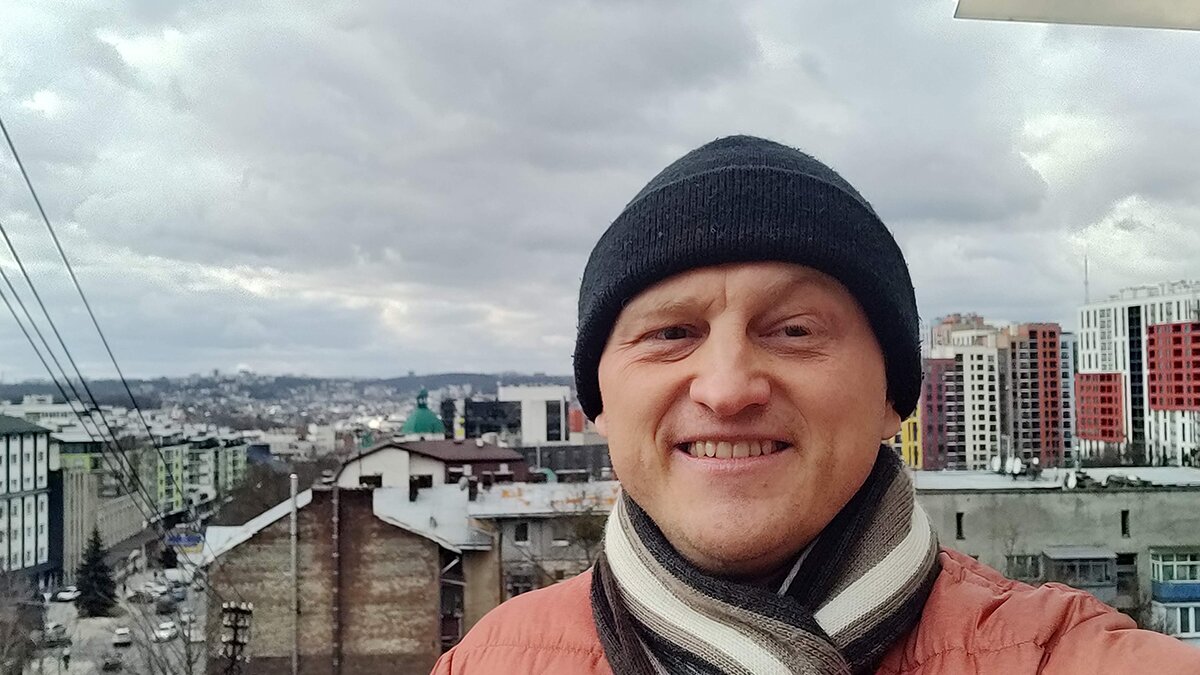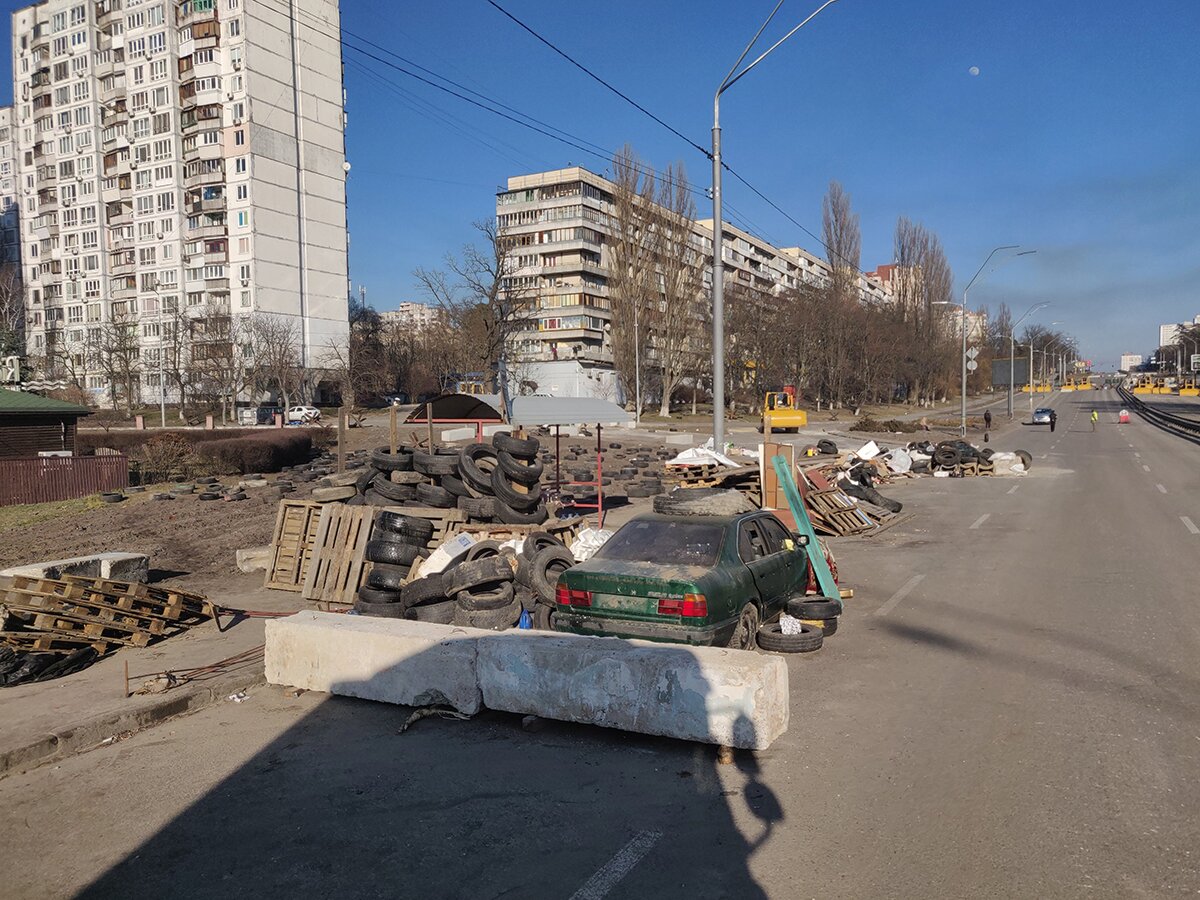After bringing supplies to his country, Ukraine man starts aid fund in Colorado

HIGHLANDS RANCH, Colo. — When Russia started bombing his homeland, Taras Overchuk knew he had to do something — he just didn’t know what yet.
“For me it was hard to sit and do nothing,” said Overchuk, who moved from Zhytomyr, Ukraine to the United States about 12 years ago. “So when it all started, I couldn’t find a place for myself. I, like, stopped sleeping … could not concentrate or focus on anything.”
At his home in Highlands Ranch, Overchuk checked the news every hour. In addition to feeling anguish for his country, Overchuk was worried for the safety of his family and friends still in Ukraine.
“I tried to connect with my friends and see what we can do, like maybe bring some supplies … and start something, but at that time I couldn't find anything that would calm me down,” Overchuk explained. “I can not sit here and I need to support my people and see it from inside, as well.”
Within the span of two days, Overchuk decided to go back to Ukraine to help support his friends and family still there and find out ways to assist Ukraine’s army. On March 4, just a week after missiles first struck Kyiv, Overchuk flew to Poland where he bought a car to drive across the border into Ukraine.
“So the plan was to buy a car in Poland, drive in, spend some time, donate the car, and return,” he said. “Visit my relatives, see what is [needed] the most, meet the military guys, meet the volunteers, make some connection[s] so when I return, we could be more efficient.”
After purchasing a car, Overchuk loaded up some medical equipment, such as first-aid kits and other supplies he purchased in Poland and headed for Lviv, his first stop. When he arrived at the Poland/Ukraine border, there were crowds swarming in both directions. Overchuk waited for four hours in line to get to the border and another three hours at the actual border. “I actually was in the line somewhere around 11 a.m. in the morning, and then crossed the border and actually entered Ukraine somewhere around 2 a.m. at night,” he said.

The line of people trying to leave Ukraine, Overchuk said, went on for miles. “My impression was like thousands of people…trying to get outside of Ukraine. And it was like children, women mostly,” he recalled. “Seeing this flow of people is actually like… I couldn't hold my tears actually. It was heartbreaking.”
Overchuk also went through multiple military checkpoints on his way to Lviv and Kyiv, which were complicated to go through, he said. When approaching a checkpoint, “you need to switch off the [head]lights,” Overchuk said. “You need to switch on the lights in[side] your car so they see you from inside your car. And this is the way you approach otherwise they may actually consider you to be a threat.”
For Overchuk, experiencing his country like this was distressing. “At that moment,” he said, “it was a mix of, like, fear and anger and frustration as well…that this is all happening.”
During his solo journey, Overchuk met volunteers in Lviv who told him what supplies they needed. He also met a military commander, he said, who Overchuk ended up donating his car to before departing Ukraine two weeks later.
He also connected with at least a dozen friends and family members like his cousins and brother, who currently resides in Vinnytsia, a city in central Ukraine. Driving through the country took even longer because many of the main roads were blocked off because of Russian forces, according to Overchuk. The drive from Lviv to Kyiv, he said, was the scariest part of his journey.
“There might be an air strike. Sometimes the siren is going on and people are trying to hide,” he said. “Just to work out your fear to actually drive close to the frontline and while you're driving, you're getting closer and closer so you kind of feel this fear.”
The only way for Overchuk to cope with this fear was to help the war efforts. Upon returning to Colorado, Overchuk and several other of his Ukrainian friends founded the Ukraine Aid Fund, a nonprofit organization that sends crucial supplies to civilians in Ukraine and its troops. Donors can choose three different ways to contribute to the cause from clothes to tactical supplies like body armor. So far, the organization has donated three cars and bulletproof vests. You can donate here.
“It’s one of the things we can do here in America… is to get the message out that Ukraine requires help,” he said. “Who[ever] can donate, needs to donate. Who[ever] can influence the government, needs to influence the government to provide more support.”
There’s a humanitarian crisis going on right now, Overchuk said. And in order to stop it, the war must be stopped.

“And I don’t see any diplomatic decision right now,” he said. “Putin is not going to stop, unless he is stopped.”
Overchuk, who moved to the United States for a better life for himself and his family, understands what could happen to his country if Putin wins the war.
“You probably can see what is going on in Russia right now. The country, from my perspective, is going to the bottom of what society could be, where there is no freedom at all … no speech," Overchuk said.
“His goal is to eliminate Ukraine as a country … And nothing less than that is actually going to satisfy him.”
Victoria Carodine is the digital content producer for Rocky Mountain PBS. You can reach her at victoriacarodine@rmpbs.org.
Julio Sandoval is a multimedia journalist with Rocky Mountain PBS. You can reach him at juliosandoval@rmpbs.org.